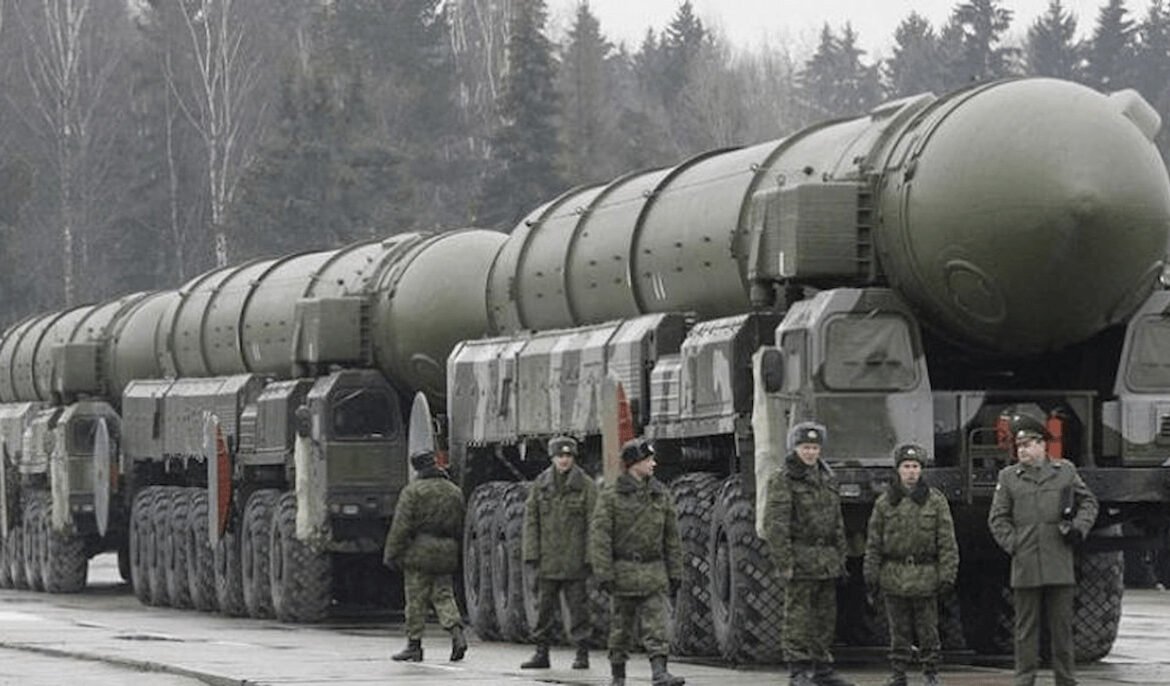Putin Issues Decree to Update Russia’s Nuclear Doctrine
Russian President Vladimir Putin has issued a decree today, Tuesday, updating the country’s nuclear doctrine.
The presidential decree states that “with the aim of improving Russia’s state policy in the field of
nuclear deterrence, I have decided to adopt the document ‘Foundations of the State Policy of the
Russian Federation in the Field of Nuclear Deterrence’.”
The decree will come into effect from the date of its signing today, November 19.
The updated Russian nuclear doctrine confirms that the state’s policy on nuclear deterrence is
defensive in nature, that Russia makes all necessary efforts to reduce the nuclear threat, and
views nuclear weapons as a deterrent, with their use considered a last resort measure.
Here are the key points of the updated Russian nuclear
doctrine:
Deterring a potential adversary from aggression against Russia and its allies is among the government’s top priorities.
An attack on Russia and its allies by a non-nuclear state supported by a nuclear state will be considered a joint attack.
Russia’s readiness and determination to use nuclear weapons ensure nuclear deterrence.
Russia can use nuclear weapons in response to a critical threat to its sovereignty and territorial integrity, including that of Belarus.
One of the conditions for using nuclear weapons is the launch of ballistic missiles against
Russia.
Providing territory and resources for aggression against Russia forms the basis for nuclear
deterrence against such a state.
Any aggression by a member of a military coalition against Russia or its allies will be seen as
an attack by the entire coalition.
Russia retains the right to use nuclear weapons in response to the use of weapons of mass
destruction against it or its allies.
The Russian President is the one who decides on the use of nuclear weapons and can, if necessary, inform other countries and international organizations about Russia’s readiness
to use them, the decision taken regarding their use, and the actual employment of such
weapons.
Russia exercises nuclear deterrence against potential adversaries, a concept that includes states, blocs, and alliances considered as adversaries by Russia.
The state policy regarding nuclear deterrence aims to maintain the capabilities of nuclear
forces at a sufficient level for nuclear deterrence.
Maintaining uncertainty for the potential adversary regarding the scale and location of
nuclear weapons use is a principle of nuclear deterrence.
Nuclear deterrence aims to ensure the potential adversary understands the inevitability of
retaliation in case of aggression against Russia.
In military conflict, state policy on nuclear deterrence ensures hostilities cease under terms acceptable to Russia.
Constant readiness of part of the nuclear deterrence forces designated for use is among the principles of Russian nuclear deterrence.
Deployment of missile defense systems by an adversary in space constitutes a threat that nuclear deterrence is used to neutralize.
Centralized control over nuclear forces, including those outside Russian territory, is a principle of nuclear deterrence.
Nuclear deterrence is ensured through the presence of forces and means in the Russian
Armed Forces capable of inflicting unacceptable damage to the adversary using nuclear weapons.
Kremlin spokesman, in comments published today, Tuesday, stated that the modifications to Russia’s nuclear doctrine have been drafted but not yet officially formalized.
Egypt’s Meteor Missiles Spark Concerns in Israel: How the Power Balance is Shifting




